| |
Jonny Dovercourt
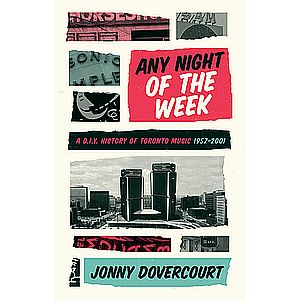
Any Night of the Week
Coach House - 2020
Michael Panontin
|
Apart from some lingering resentment in the rest of Canada, Toronto is for the most part a respected, even admired, world city. But it wasn't always so. When hard-drinking Hemingway arrived in 1923, he lamented in a letter written from his hotel room on Sherbourne St, "It couldn't be any worse. You can't imagine it. I'm not going to describe it. [ ] I have not had a drink in five days." Years later, the travel writer Jan Morris politely called Toronto "the most undemonstrative city I know, and the least inquisitive". On the music front, Village Voice scribe Richard Goldstein was equally dismissive, describing freak-filled Yorkville in 1967 as "a hippy Disneyland" and "a sterile stretch of plastic bohemia".
In part, Jonny Dovercourt's Any Night of the Week is an attempt to redress those misconceptions, at least as they apply to Toronto's vibrant indie music history. Dovercourt himself is perhaps uniquely qualified to attempt such an undertaking; he helped found the city's long-running Wavelength collective twenty years ago and has worked as its artistic director for the past six.
Unsurprisingly, Dovercourt's focus is less on the actual recorded output of the city and more on the live music experience, a perennial drawing card for Toronto ever since a young Ronnie Hawkins first set his Ozark eyes on the hopping Yonge Street strip way back in the late fifties. "Most of the books that were coming out were scene - or time-period - specific," Dovercourt told CM, "and I came up with the notion of 'connecting the dots' and bridging together all the different eras of Toronto music history. What I learned is that it's the live music club circuit that has really made Toronto a vital music city, and that the experience of going out to gigs and seeing bands is really where community develops."
Toronto's well-deserved live scene was in sharp contrast to its once-anemic recording industry and its dearth of independent labels, not to mention a bit of unexplained bad luck, all of which served to either chase aspiring musicians out of town or leave them there to self-destruct. "Where Toronto unfortunately fell a bit short," Dovercourt explains, "was establishing local/regionally-identified indie labels that were able to export the city's musical identity internationally the same way someone like Factory Records was able to do with Manchester, for example." Even as late as 1999, he notes, with the city swarming with talent, a band like Do Make Say Think had to look to Montreal's Constellation label to get their records released to a wider audience.
In Any Night of the Week, Dovercourt chronicles all of the local scenes from that same neon-lit Yonge Street that seduced the young Hawkins through to the exceptionally fertile period of his Wavelength days, with all stops in between. At just a little over 300 pages, though, Any Night... barely scratches the surface of those scenes, many of which could merit an entire book's worth of storytelling. Those hungry for Toronto history will likely have already devoured Nicholas Jennings' Before the Gold Rush or Liz Worth's Treat Me Like Dirt and thus will leave the chapters on psych and punk feeling somewhat less than sated.
But where Any Night... really shines is in its separate entries on the various players whose stories have until now been left untold. Chapters on criminally ignored synthesizer pioneer John Mills-Cockell and his Intersystems/Syrinx years, leftfield post-punks the Government and queercore pioneers Fifth Column are especial additions to the pop culture literature. Groups like Truths and Rights, Shadowy Men on a Shadowy Planet and King Cobb Steelie, the latter easily Toronto's most neglected act of the last twenty years, are also rescued from that inexorable slide down the well of forgotten bands.
These days Toronto walks with a swagger once reserved for top-level cities like London or New York. Gazillion-sellers like Drake and The Weeknd top the charts all over the world, while indie acts like Metric, Peaches and Broken Social Scene have headlined in front of many thousands of fans. Jonny Dovercourt reminds us that the vibrant club scene we take for granted these days has always existed, and that those who once served - not just the groups, but the promoters, deejays, zinesters and even the fans - need to be given their places in Toronto history.
|
Coach House
|
Suggestions
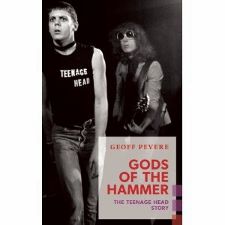
Geoff Pevere
Gods of the Hammer
Coach House
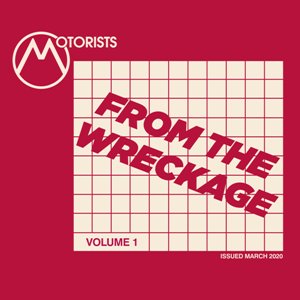
Motorists
From the Wreckage EP
Planet of the Tapes
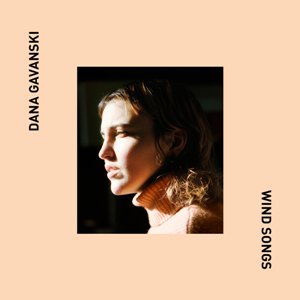
Dana Gavanski
Wind Songs EP
Flemish Eye
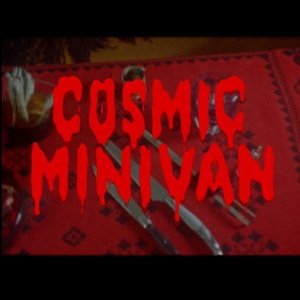
Princess Century
Cosmic Minivan (download track)
(independent)
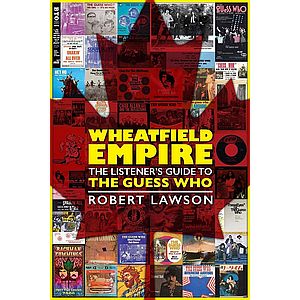
Robert Lawson
Wheatfield Empire: The Listener's Guide to the Guess Who
Friesen
|








